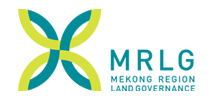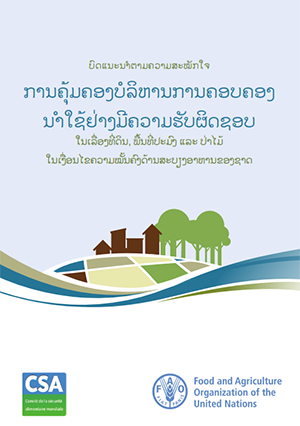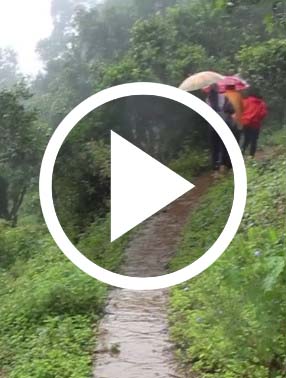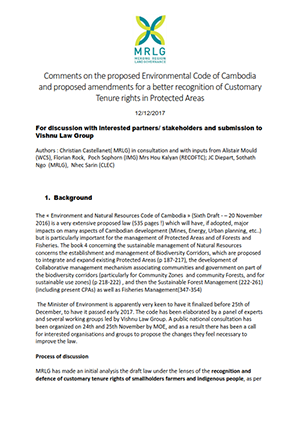Location
Project Description
Land governance is at the center of development challenges in Cambodia, Laos, Myanmar and Vietnam. Governments are revising land policies and practices in order to face these challenges. The project aims to (i) assist the emergence of more favorable policies and practices for securing the rights and access of family farmers to land and natural resources; and (ii) to strengthen the effectiveness of concerned stakeholders through learning, alliance building and regional cooperation.
The MLRG project is based in Laos, with local offices in three other countries: Cambodia, Myanmar, and Vietnam. It supports a wide range of activities (training, exchanges, case studies, focused research, documentation, workshops and seminars) at local, national and regional levels.
The MRLG can support initiatives through three component windows, the first is a learning and advocacy ongoing activity platform supported by National Facilitators in each country. The second two are funded through our Grant Facility open to all stakeholders based on demand and proposals prepared. A short term and immediate response window is the Quick Disbursement Fund (QDF). The second longer term and competitive proposal process is the Innovation Fund (IF). The learning and advocacy activity platform prepared on an annual basis in consultation with stakeholders to organize information collection, analysis, and dissemination, and for horizontal learning and structured learning visits, coaching and pairing, training and organizational strengthening, at the national and regional level.
Members:
Resources
Displaying 66 - 70 of 110Lao Version of FAO’s Voluntary Guidelines on the Responsible Governance of Tenure (VGGT)
FAO published its Voluntary Guidelines on the Responsible Governance of Tenure (VGGT) of Land, Fisheries and Forests in the Context of National Food Security in 2012. The purpose of these guidelines is to serve as reference and to provide guidance to improve the governance of tenure of land, fisheries and forest with the overarching goal of achieving food security for all and to support the progressive realization of the right to adequate food in the context of national food security. The guidelines were translated into Lao and published in 2013.
Khmer Version of FAO’s Voluntary Guidelines on the Responsible Governance of Tenure (VGGT)
FAO published its Voluntary Guidelines on the Responsible Governance of Tenure (VGGT) of Land, Fisheries and Forests in the Context of National Food Security in 2012. The purpose of these guidelines is to serve as reference and to provide guidance to improve the governance of tenure of land, fisheries and forest with the overarching goal of achieving food security for all and to support the progressive realization of the right to adequate food in the context of national food security.
Khmer Version of FAO’s Voluntary Guidelines on the Responsible Governance of Tenure (VGGT)
FAO published its Voluntary Guidelines on the Responsible Governance of Tenure (VGGT) of Land, Fisheries and Forests in the Context of National Food Security in 2012. The purpose of these guidelines is to serve as reference and to provide guidance to improve the governance of tenure of land, fisheries and forest with the overarching goal of achieving food security for all and to support the progressive realization of the right to adequate food in the context of national food security.
Exploring Opportunities for Smallholder Tea Producers in Laos
This short video examines an initiative by Earth Systems to develop a tea sector dialogue platform that brings together key stakeholders in the value chain to jointly examine challenges and opportunities for the development of a more equitable and sustainable tea sector in Laos. The video highlights the outcomes and lessons from a tea stakeholder workshop held in Phongsaly province, northern Laos, in July 2016.
Comments on the Proposed Environmental Code of Cambodia (V6) and Proposed Amendments for a Better Recognition of Customary Tenure Rights in Protected Areas
The « Environment and Natural Resources Code of Cambodia » (Sixth Draft – – 20 November 2016) is a very extensive proposed law (535 pages !) which will have, if adopted, major impacts on many aspects of Cambodian development (Mines, Energy, Urban planning, etc..) but is particularly important for the management of Protected Areas and of Forests and Fisheries. The code has been elaborated by a panel of experts and several working groups led by Vishnu Law Group. A public national consultation has been organized by MOE in Dec 2016.





